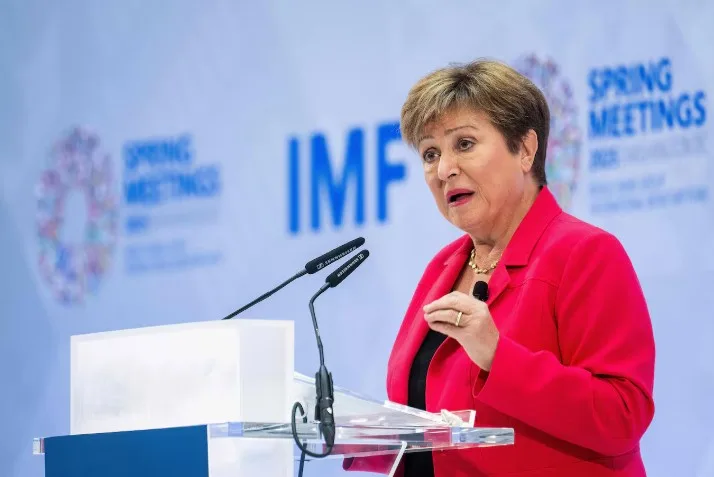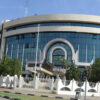The International Monetary Fund (IMF) has revised upward its economic growth projections for Nigeria in its July 2025 World Economic Outlook (WEO).
For 2025, the IMF now forecasts Nigeria’s GDP to grow by 3.4%, up by 0.4 percentage points from the 3.0% projection made in April. The forecast for 2026 has also been upgraded to 3.2%, an increase of 0.5 percentage points from the previous estimate of 2.7%.
Global growth projections were also revised. The IMF now expects the global economy to expand by 3.0% in 2025 and 3.1% in 2026—an upward revision of 0.2 and 0.1 percentage points, respectively, from April’s outlook.
For Sub-Saharan Africa, growth is projected at 4.0% in 2025 and 4.3% in 2026, up from 3.8% and 4.2%, respectively. The IMF noted: “Growth is expected to be relatively stable in 2025 in sub-Saharan Africa at 4.0 percent, before picking up to 4.3 percent in 2026.”
Despite the improved outlook, the IMF stressed the urgent need for structural and institutional reforms across the Sub-Saharan African region to sustain economic recovery and unlock long-term growth.
Deniz Igan, Division Chief in the IMF’s Research Department, said reforms are essential to address the region’s complex challenges and foster inclusive growth.
“There’s a need for both structural and institutional reforms—regional trade integration, investment in infrastructure, and reform of state-owned enterprises, particularly in energy and transportation, are key priorities,” she said.
Igan also called for equitable fiscal reforms to avoid worsening inequality or triggering social unrest. She recommended eliminating poorly targeted tax exemptions, increasing reliance on progressive income taxes, and building public trust through transparent and inclusive governance.
“Fiscal reforms must be equitable and efficient. It’s important to engage stakeholders, sequence reforms carefully, and ensure the most vulnerable are protected,” she added, referencing the IMF’s October 2024 report on inclusive fiscal policy.
Also speaking, Pierre-Olivier Gourinchas, Director of the IMF’s Research Department, warned that high public debt and sustained deficits remain significant risks for many economies. He emphasized the need to restore fiscal space and protect central bank independence.
“Too many countries are still grappling with elevated debt and deficits. This makes them vulnerable to sudden shifts in global financial conditions,” he said.
“Maintaining central bank independence is essential for monetary and financial stability.”
The IMF’s revised projections come as many countries continue to recover from economic disruptions and face uncertainty from inflation, geopolitical tensions, and global interest rate movements. The Fund urged governments to pursue prudent policies, stronger institutions, and deeper regional cooperation to build resilience and sustain growth.


